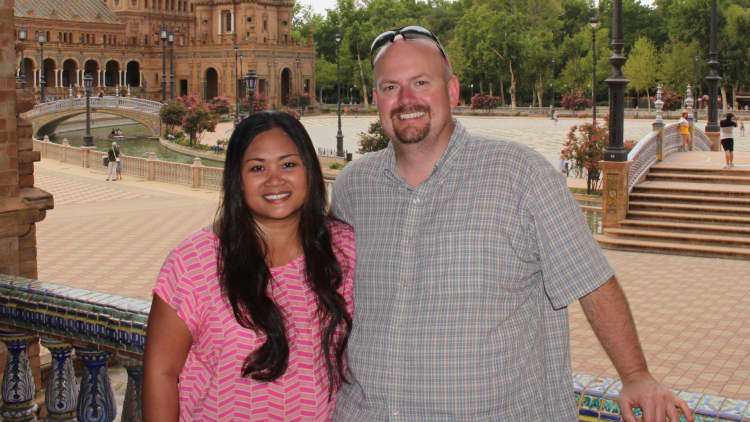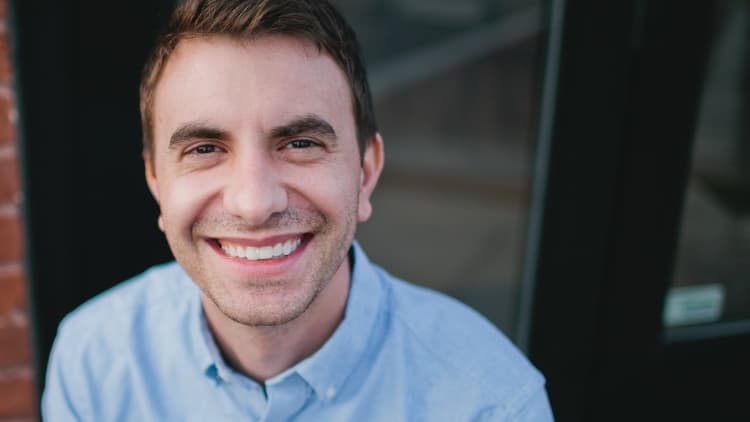After carefully saving and investing more than half his income for six years, Chris Reining had enough in the bank to quit his corporate job and retire at age 37. But the self-made millionaire wasn't always a cautious spender and diligent saver.
Right out of college, in his early 20s, "I went through this whole thing of buying expensive cars and staying in $500-a-night hotel rooms and buying $10,000 worth of furniture and just all this stuff," Reining tells CNBC Make It. He fell into the never-ending cycle of "wanting more and more and more."
It wasn't until his late 20s when he realized that "all of these extra, superficial things that I was buying really wasn't making me any happier," he says, "and what would make me the happiest was being independent."
That mindset shift made his early retirement possible. In 2010, Reining committed to becoming financially independent. He set the goal of building a $1 million portfolio by age 35 and started working to save and invest, rather than working to spend.
He got to the point where he was saving more than half his income, reached the $1 million mark at 35 and officially retired in 2016 at age 37.
"For me, it was never really about retiring early," says Reining, now 39, who lives in Madison, Wisconsin. "It was about having financial independence. It was about having the financial means to be able to do whatever you want."
For nearly three years, Reining has been living off of his investments and he's "not really worried about ever running out of money."
You don't have to work, get money, spend money and work again, repeating that cycle until you're so old and sick you can't work anymore.Chris Reiningself-made millionaire and early retiree
What Reining learned in his 20s, and the advice he would give others, is that "you don't have to work, get money, spend money and work again, repeating that cycle until you're so old and sick you can't work anymore," he writes on his blog.
"Instead, you can work to save, save to invest and eventually stop working because your money is working for you."
The temptation to overspend on fancy cars and gadgets is always there, he says, but the key to resisting it is to appreciate what you have right now.
"You have to implement a practice of taking a walk outside and just realizing how great your life is," Reining tells Make It. "And just realizing that those other materialistic things, while they might provide you a momentary moment of happiness, in the long term, that happiness fades and then you're looking for the next thing to buy or to consume."
Don't miss: Here's how much money to save if you want to retire 'rich,' according to wealth manager David Bach
Like this story? Subscribe to CNBC Make It on YouTube!




